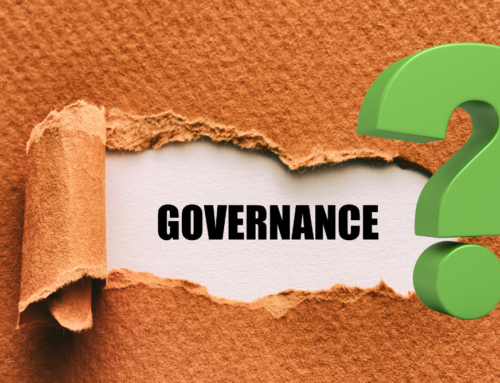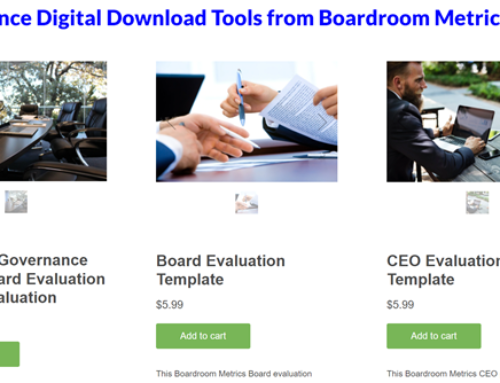If every company gets these three things right, it will be successful. It doesn’t matter if the company is a start-up or Facebook. The three things are:
- Identifying and mitigating killer risks
- Developing and executing a good strategy for achieving the company’s mission
- Hiring and performance managing the right CEO to run the day to day
Overseeing these three elements is what corporate governance is all about. It’s what the Board of Directors is responsible for.
All companies are susceptible to making errors in these three areas. Corporate governance fails all the time. However, early stage companies even more so. Here’s the questions investors should ask about governance to mitigate some of the risk of an early stage investment.
The Five Governance Questions for Early Stage Investors
-
How objective is the Board of Directors?
Lack of objectivity is the enemy of good governance. It’s what blinds a Board/organization to risk and fools them into thinking the strategy and CEO are wonderful (see WeWork).
How do Boards end up not being objective? Both by relying on and finding themselves subservient to founders, friends and other insiders like VC’s, bankers, lawyers, parents, and others.
Founders aren’t objective because they don’t want the business to fail (ego) and they crave the financial reward of going public, getting acquired, etc. Even worse, they often having voting control of the shares, thereby rendering oversight by anyone else useless.
Parents aren’t objective because….well, obviously.
Bankers, VC’s and others aren’t objective because their investment must succeed. Anything that gets in the way of increasingly higher valuations isn’t a good thing.
So ask about the Board composition – and if the Board is mostly or all insiders – ask more questions. Like….
-
How knowledgeable is the Board about the risks and strategies of whatever space the company is in?
This one is tricky. Often, early stage companies are stocked with cool people who seem to understand their space. It’s one of the common ways early stage companies sell their opportunity. The problem? In many cases, they’re part of the Board or founder team, and their personal financial incentives (like selling founder shares) aren’t financial-results based – and therefore they’re not objective.
-
What background does the Board and CEO have in starting, building and monetizing a an early-stage business?
VC’s ask this one all the time. Although past success isn’t a guarantee of future performance, it’s reassuring to know this isn’t everyone’s first churn inside the tornado. Generally, experience is good and good past experiences for investors are even better.
-
What background does the Board have in good corporate governance?
Also a tricky one. Don’t be fooled by a familiar name. There’s lot’s of high profile Directors and organizations who don’t understand corporate governance. They aren’t good role models for strong oversight. In fact, the list is endless including Facebook, WeWork, Tesla, Volkswagen, Wells Fargo, GE, etc.
-
Most importantly, what governance processes are in place to help ensure there is real oversight of the business?
This is important because it’s where governance rubber hits the road. Good oversight practices include:
- Regular Board meetings (at least 6/year) run by an experienced Board Chair
- A sound strategic plan that identifies the mission of the organization, the risks it faces and the strategies for achieving success
- Annual operating plans for the organization approved by the Board and updated at every Board meeting
- A regular (at least annual) review of the CEO’s performance and clearly established performance goals for the CEO. Tons of established companies wrestle with this one. The majority of CEO’s in private companies have never had a performance review. However, you don’t just want the CEO running around doing whatever they want. You want to know that there is some process in place for overseeing, not just worshipping and kowtowing to the CEO.
The Ultimate Test for Early-Stage Corporate Governance
There is one very simple test any investor can use to judge the governance of an early stage (or any) organization. Ask this question: is the CEO also the Board Chair? If the answer is yes, then oversight is impossible and corporate governance will be weak.
Governance for early stage investors revolves around objectivity, risk, and the CEO. Asking and answering questions that provide some level of comfort is better than getting sucked in by hype and wiped out by reality.








Leave A Comment